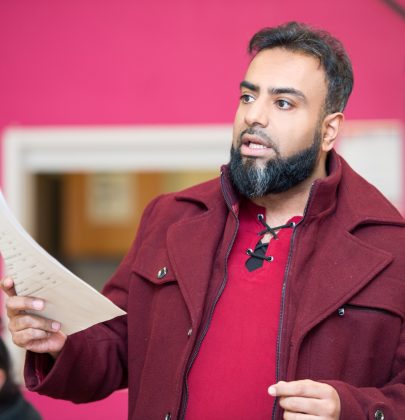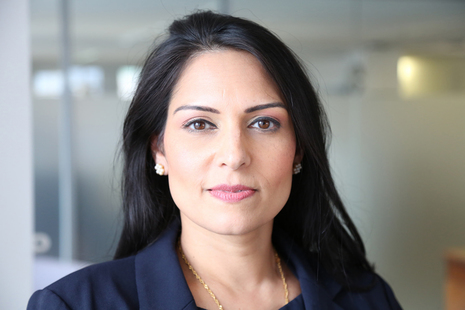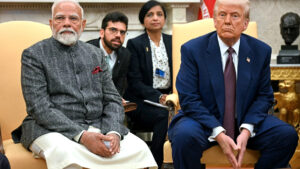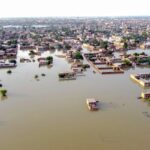Pakistan Floods: Climate change concerns grow as charities rush to provide aid
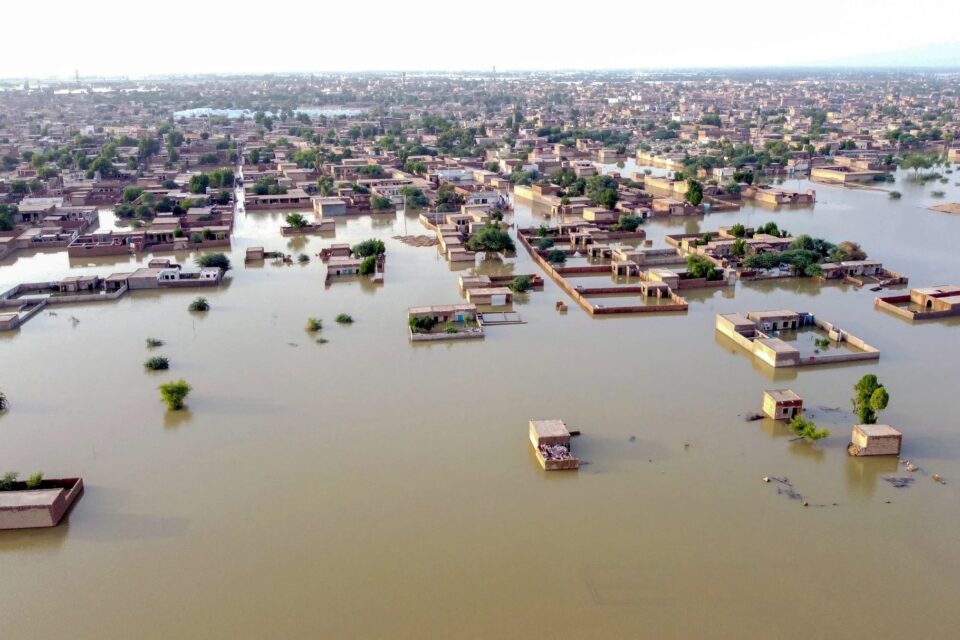
Image by Fida Hussain/AFP via Getty Images
As the death toll continues to rise, Pakistan has urged the international community to provide as much help to the country as possible.
Initial government estimates state that the country has faced $10billion (£8.7billion) in damages caused by the intense rainfall which caused excessive flooding and resulted in one-third of the country getting submerged under water.
With over 7,200 glaciers, Pakistan is the only country which is home to so many glaciers outside the Earth’s poles. The devastation caused by the floods has been linked largely to climate change.
As the temperatures continue to rise, glacial ice is consistently melting. Glaciers in Pakistan’s Gilgit-Baltistan and Khyber Pakhtunkhwa regions are melting quickly, creating more than 3,000 lakes, the UN Development Programme told BBC News.
The risk posed by global warming not only affects Pakistan, but also all the countries in South Asia in the coming years as Secretary-General of the United Nations, Antonio Guterres, pointed towards the region being a climate change hotspot, with the chances of people dying considered to be 15 times higher than any other part of the world.
As there is an outpour of aid from across the world, including the UK, many charities in the country have said that they are having to face various challenges along the way.
Waseem Ahmad, CEO of Islamic Relief Worldwide, said, “In my 22 years of experience as a humanitarian aid worker I have never seen anything like this.

Image by antarcticglaciers.org
“Access is a big issue, there is not even the dry land to airlift people. I was in Sind Province in an area where there was seven feet of water and we couldn’t see the houses or electricity pylons. People were stranded on the rooftop waiting for the water to go away – they didn’t want to leave their belongings. After two days we were able to deliver aid to them. I also saw people in these areas using local materials; rubbers and tyres to build boats.
Ahmad added that in some areas around half of the people had lost their crops. “Another concern is about food security, I think it’s a real issue now,” he said. “People are talking about how they will survive in the coming months.”
Islamic Relief is now a part of the Disasters Emergency Committee (DEC) which has partnered with 15 leading aid charities and launched an urgent appeal to help millions affected by the floods.
Other charities also mentioned being witness to the devastation and grim scenarios that the country’s people are facing.
Numan Shahid, Special Projects Coordinator at Human Appeal, which has distributed over 4000 hot meals, hygiene kits and other emergency assistance within remote areas at some of the worst hit regions, said, “This is far from a typical monsoon season in the country, with already double the number of monsoon rain cycles impacting the region alongside increasing glacier melt fueled by climate change. Roadways and livestock have been washed away, and now widespread internet outages are impacting some of the hardest-hit regions making travel and communication almost impossible for people who have already been forced to flee their homes.
“The situation for these people is beyond critical and we are urgently appealing to donors to give what they can; already it is widely recognised that global institutional funding is not enough to assist this country which urgently needs more help, support, and humanitarian aid.”
Umar Rashid – Programs Manager Muslim Hands spoke of his visit to Pakistan, “Last week I visited Dera Ghazi Khan, a city in the southwest of Punjab and one of the worst hit areas in Pakistan, on behalf of international NGO Muslim Hands. Over sixty percent of the population here live below the poverty line and rely on agriculture to support their families.
“As I entered the district, I was faced with complete and utter devastation. Water was everywhere. The flood had wreaked havoc and occupied the lands of the families that once lived here, their crops destroyed. Just a few months prior, Pakistan was facing one of its worst heatwaves that had impacted agricultural production and decimated crops, sparking then food shortages,” he added.
Muslim Hands has raised over £400,000 worth of aid that has been distributed, reaching over 125,000 beneficiaries in the form of emergency food parcels, cooked food, medical intervention and tents. As the country grapples with the disastrous effects caused by climate change, it is also currently undergoing other major issues in terms of political unrest and increasing debt.

